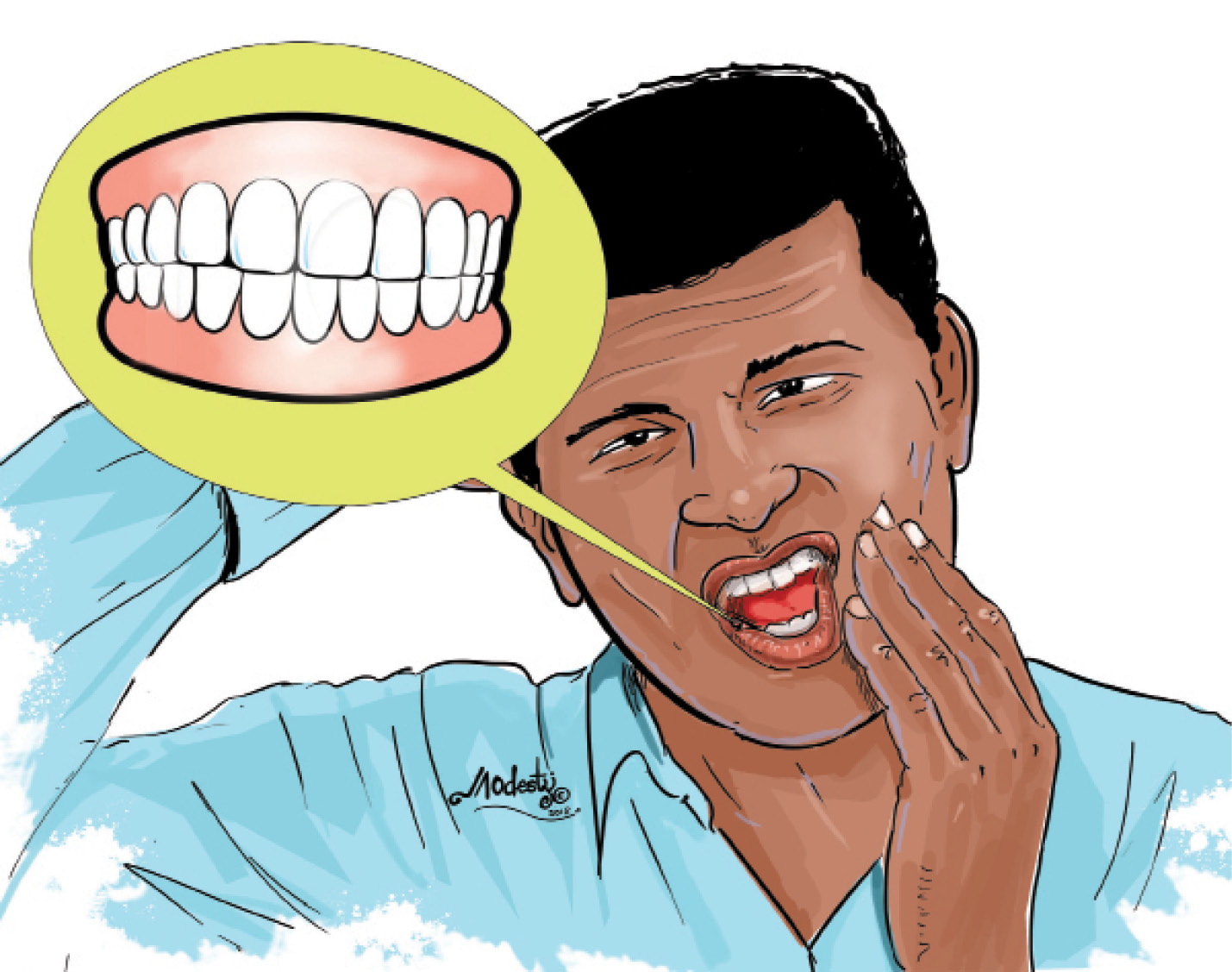Dental surgeon cautions older people against chewing bone
Dr Hassan Kalejaiye, the Chief Dental Surgeon, University of Ilorin Dental Clinic, has cautioned older people, especially those over 50, to avoid breaking bones with their teeth while eating. Kalejaiye, who gave the advice on Tuesday while speaking with journalists in Ilorin, explained that the teeth became more fragile as one grew older. Second wave: […]

Dr Hassan Kalejaiye, the Chief Dental Surgeon, University of Ilorin Dental Clinic, has cautioned older people, especially those over 50, to avoid breaking bones with their teeth while eating.
Kalejaiye, who gave the advice on Tuesday while speaking with journalists in Ilorin, explained that the teeth became more fragile as one grew older.
He said people should also avoid consumption of junk food, and go for regular checkups to keep their teeth healthy.
“To maintain pain-free teeth throughout one’s life, people should brush their teeth daily with fluoride toothpaste and clean in-between the teeth with dental floss, a water flossier, or a similar product.
“This helps to remove plaque and leftover food that a toothbrush can’t reach.
“Furthermore, the toothbrush used should not be too hard or too soft, instead, it should be medium.
“Soft brush will not clean the teeth well, while the hard brush will destroy the gum,” the dental surgeon said.
Kalejaiye said chewing sticks could clean the teeth, but noted that it was hard to tell which posed danger to the teeth between hard and soft chewing sticks.
He urged people to avoid brushing the teeth with all their strength.
“Pregnant women as well as children under the age of eight should avoid using tetracycline, as the drug discolours the teeth of the baby,” Kalejaiye said.
He described the mouth as the mirror of the body, saying that dentistry was a profession that helped people regain their self-confidence.
Commenting on how the coronavirus pandemic has affected the dental profession, Kalejaiye said the fear of the virus had changed the mode of operation.
According to him, there were some examinations that required close contact with patients.
Kalejaiye said the dentist examining a patient with foul breath will still have to stick his nose close to the patient’s mouth.
He said the dentist would then ask the patient to breathe out through the mouth in order to find out whether the bad breath was mouth odour or something else.
“Even with face mask and other recommended precautionary materials, there are some ordinary procedures that we are advised to follow because the protective materials cannot guarantee absolute protection.
“Most people don’t visit the dentist for checkups, except when they are in pain, and this is very risky,” Kalejaiye also said.
He recommended regular dental checkups, at least twice in a year, saying the visit should be an opportunity to do routine scaling and polishing.
Kalejaiye said that was necessary because no matter how clean the teeth was, there would be some debris present in the mouth. (NAN)
